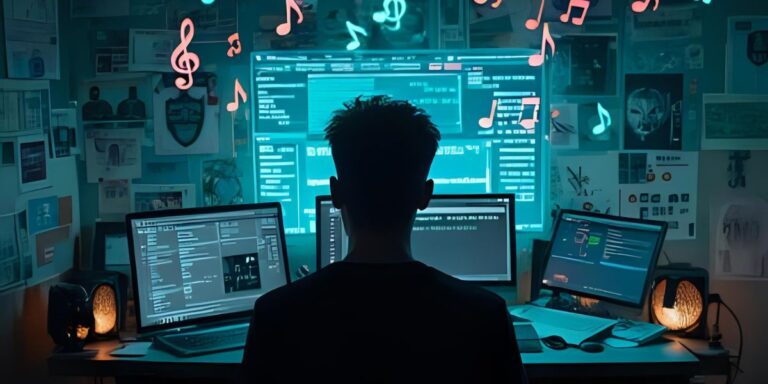The music streaming industry is facing a major disruption as AI-generated tracks and bot farms begin to infiltrate platforms, leading to serious financial consequences for independent musicians. These new technologies, which allow for the automated creation of music and manipulation of streaming numbers, are causing significant challenges for artists trying to make a living from their work.
One of the main culprits of this upheaval is the rise of AI tools that generate music tracks. Platforms such as Deezer report the addition of thousands of these AI-created tracks every day, with some estimates indicating as many as 20,000 new AI tracks being uploaded daily. While some may see this as a sign of innovation in the music industry, the reality is that it is creating an unfair advantage for a select few. The problem is that these AI-generated tracks, which are often indistinguishable from human-made music, are flooding the platforms and manipulating the system in ways that harm independent artists.
Another issue that has arisen is the rise of bot farms. These farms use automated programs or fake accounts to artificially inflate the number of plays a track receives. While this may seem like a harmless tactic, the results are far-reaching. Popularity and success on streaming platforms are largely determined by the number of streams a song or artist receives, so when fake streams flood the system, it distorts the way platforms determine what is truly popular and who gets exposure. This has led to indie artists seeing their tracks pushed down in search rankings or even removed entirely due to what automated systems interpret as suspicious activity.
Streaming platforms, which rely on algorithms to track and manage content, have been struggling to differentiate between legitimate popularity spikes and bot activity. This confusion has resulted in some independent artists being wrongfully accused of manipulating their own streams. These accusations often lead to their tracks being taken down, and the appeal process is slow, making it difficult for artists to clear their names or recover lost revenue.
In response to this growing crisis, several initiatives have emerged to create more transparency in the system. One such effort is the Featured Artists Coalition’s proposed “traffic light” alert system, which aims to create clear guidelines for identifying fraudulent activity and ensuring fair treatment for all artists. The system would serve as a method of distinguishing between legitimate and artificial popularity, giving artists a better chance to prove their worth without fear of unjust takedowns.
Despite these efforts, the road ahead remains uncertain for independent musicians. With AI and bots continuing to disrupt the streaming industry, many are left feeling vulnerable and uncertain about the future of their careers. As the fight for fair play continues, the impact on the music industry as a whole is bound to be profound, with both challenges and potential new opportunities for artists on the horizon.


